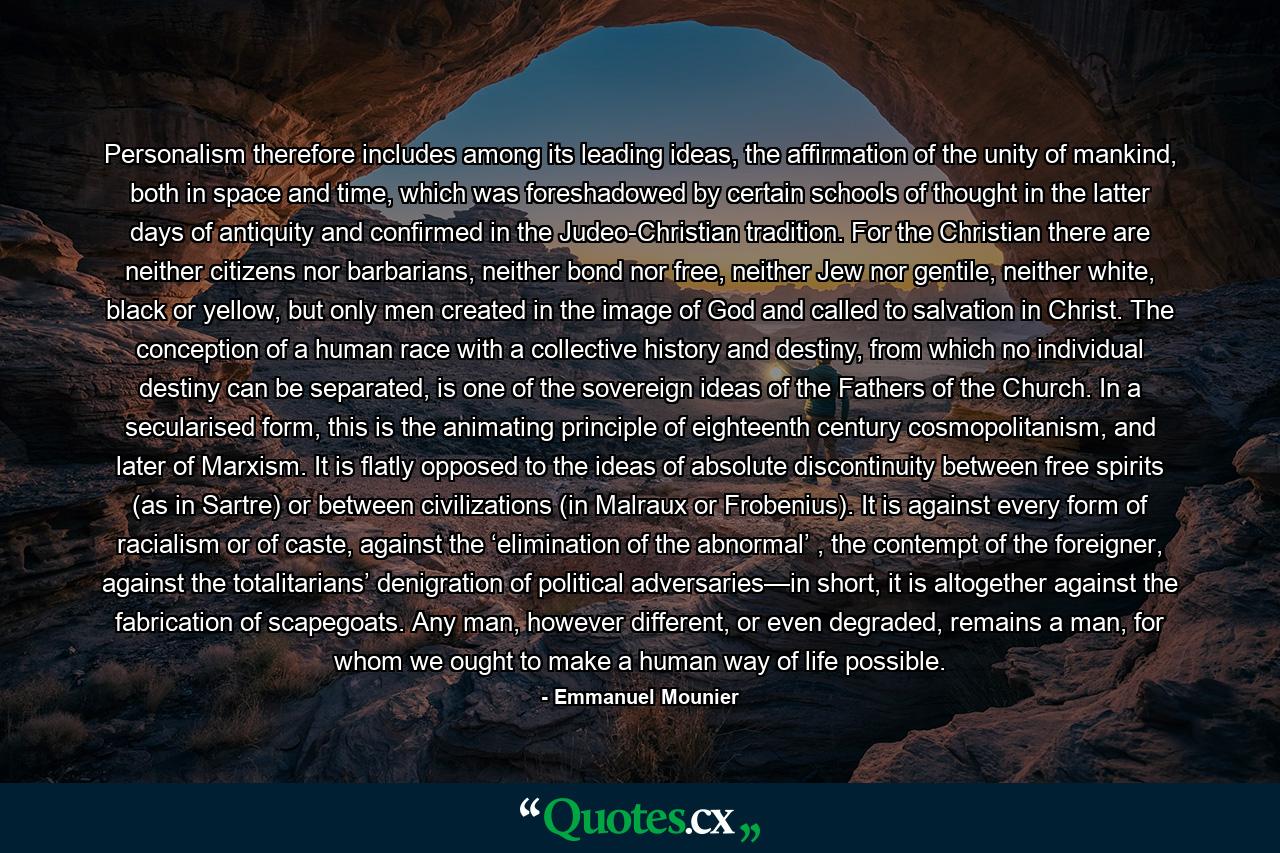Personalism therefore includes among its leading ideas, the affirmation of the unity of mankind, both in space and time, which was foreshadowed by certain schools of thought in the latter days of antiquity and confirmed in the Judeo-Christian tradition. For the Christian there are neither citizens nor barbarians, neither bond nor free, neither Jew nor gentile, neither white, black or yellow, but only men created in the image of God and called to salvation in Christ. The conception of a human race with a collective history and destiny, from which no individual destiny can be separated, is one of the sovereign ideas of the Fathers of the Church. In a secularised form, this is the animating principle of eighteenth century cosmopolitanism, and later of Marxism. It is flatly opposed to the ideas of absolute discontinuity between free spirits (as in Sartre) or between civilizations (in Malraux or Frobenius). It is against every form of racialism or of caste, against the ‘elimination of the abnormal’ , the contempt of the foreigner, against the totalitarians’ denigration of political adversaries—in short, it is altogether against the fabrication of scapegoats. Any man, however different, or even degraded, remains a man, for whom we ought to make a human way of life possible.
